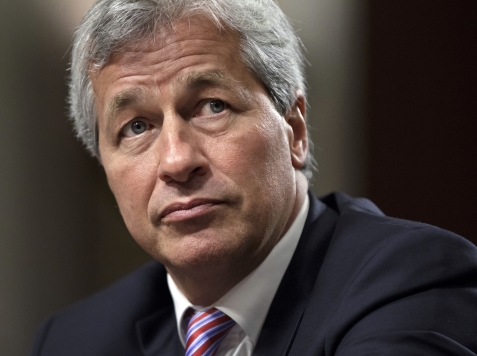It is said that America is a monarchy ruled by a president, while Great Britain is a democracy ruled by a king. There is more than a little truth to this statement. America’s democracy is representative and indirect, a reflection of the distrust of popular rule by our nation’s founders. Andrew Jackson was the first popularly elected American President.
When it comes to the world of investment, the American model of corporate governance is decidedly monarchist in nature. Corporate chieftains behave like kings, with little accountability to the owners of the business – the shareholders. The debate over whether JP Morgan Chairman & CEO Jamie Dimon should carry both titles is a case in point. Most public companies combine the role of chairman and chief executive, but my view is that this is a terrible mistake.
Andrew Ross Sorkin, the famed New York Times columnist and CNBC prognosticator, is squarely in the monarchist camp. “It may not be popular to say, but the incontrovertible fact remains that JPMorgan is still one of the best-performing banks on Wall Street under Mr. Dimon. The firm is possibly the only major bank in the nation that did not require a bailout,” he wrote this week. After consulting former Goldman Sachs CEO Hank Paulson, Andrew concludes that having Dimon wear two hats is just fine.
The problem with Dimon’s dual role at JPMorgan in particular and the governance of other large public companies in general is that this debate is not about efficiency or stock prices. It is about accountability. Adolf Berle and Gardiner Means note in their 1932 classic, The Modern Corporation and Private Property: “The property owner who invests in a modern corporation so far surrenders his wealth to those in control of the corporation that he has exchanged the position of independent owner for one in which he may become merely recipient of the wages of capital… [Such owners] have surrendered the right that the corporation should be operated in their sole interest…”
The American model of corporate governance, best exemplified by Delaware law, is indirect democracy at best. Under DE law, officers and directors of a corporation have a duty of care not to shareholders, but to the corporation. Shareholders in aggregate do not have much impact on corporate decisions. When a majority of shareholders vote to remove a director or require JPMorgan to elect a separate chairman, their actions are symbolic only. The bank’s directors have no duty to follow the wishes of shareholders.
The fact of indirect democracy for investors in widely held public companies, where managers are not significant shareholders, means we should always err on the side of splitting the CEO and Chairman roles. The CEO manages the company while the chairman and the board of directors supervise the managers and provide for a smooth succession when a manager is replaced. A single person cannot do both jobs effectively, even in a well-run company. In a badly run enterprise, combining the chairman and CEO roles becomes an excuse for mediocrity or worse.
The poorest argument for a dual Chairman/CEO role is found with the large banks, which have been significant destroyers of shareholder value over the past several decades. JPMorgan did not require a bailout, but the internal governance of the bank has hardly been exemplary under Dimon. The London Whale trading fiasco is simply the latest and greatest breakdown in internal systems and controls at the nation’s largest bank.
Look at Citigroup, a bank that was mismanaged for decades under the rule of corporate monarchs like Sandy Weil, Robert Rubin and their vassal Chuck Prince. Only the fact of a new, separate Chairman in Mike O’Neill allowed the board of Citi to finally remove Vikram Pandit, the hand-picked successor to Prince. Had Pandit been both chairman and CEO, he might still be entrenched and Citi would still be struggling.
Jamie Dimon is one of the best operators in the banking industry, but he is also human. The question of separating the role of chairman and CEO at JPMorgan is an outgrowth of the London Whale scandal, which is ongoing. My advice to Dimon is to make a virtue out of necessity, embrace a separate chairman, and leave Wells Fargo as the last of the top four zombie banks with a single person with both titles. Indeed, Wells Fargo’s John G. Stumpf, wears three hats — Chairman, CEO and President.

COMMENTS
Please let us know if you're having issues with commenting.